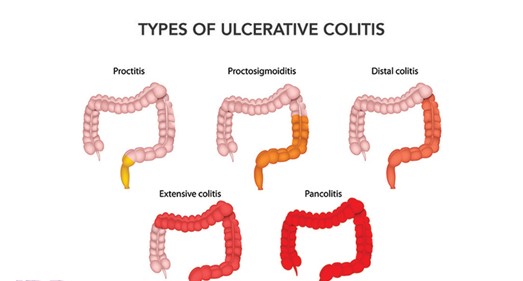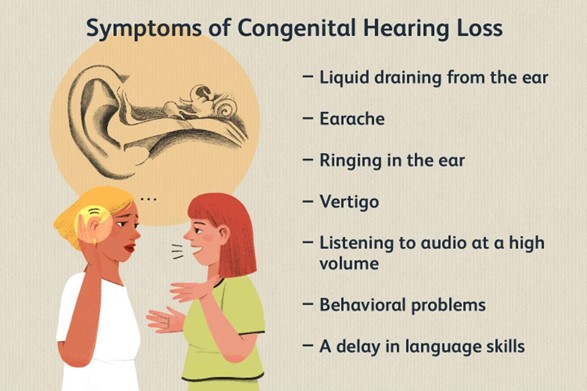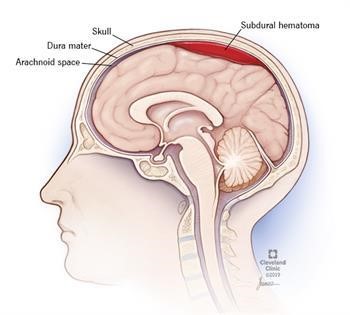A nurse is caring for a client who has ulcerative colitis and is teaching the client about the common link with Crohn's disease. Which of the following information should the nurse include?
Both are inflammatory.
Both affect the entire alimentary canal.
Both will require a bowel diversion.
Both disorders are caused by low-fat, high-fiber diets.
The Correct Answer is A
Choice A reason: This is the correct answer because both ulcerative colitis and Crohn's disease are inflammatory bowel diseases (IBD) that cause chronic inflammation of the digestive tract. The inflammation can cause symptoms such as abdominal pain, diarrhea, bleeding, weight loss, or fever. The nurse should educate the client on how to manage inflammation and prevent complications.
Choice B reason: This is incorrect because both ulcerative colitis and Crohn's disease do not affect the entire alimentary canal, but different parts of it. Ulcerative colitis affects only the colon (large intestine) and rectum, while Crohn's disease can affect any part of the digestive tract from mouth to anus, most commonly the ileum (the last part of the small intestine). The nurse should explain the differences in location and extent of
the diseases.
Choice C reason: This is incorrect because both ulcerative colitis and Crohn's disease do not always require a bowel diversion, but only in some cases. A bowel diversion is a surgical procedure that creates an opening (stoma) in the abdomen to divert fecal matter into an external bag or pouch. It may be done to treat severe complications such as perforation, obstruction, fistula, or cancer. The nurse should inform the client about the indications, types, and care of bowel diversions.
Choice D reason: This is incorrect because both ulcerative colitis and Crohn's disease are not caused by low-fat, high-fiber diets, but by unknown factors. The exact causes of IBD are not clear, but they may involve genetic, immune, environmental, or microbial factors. Low-fat, high-fiber diets may help prevent or reduce symptoms of IBD, but they do not cause them. The nurse should advise the client on how to follow a balanced and nutritious diet that suits their individual needs and preferences.

Nursing Test Bank
Naxlex Comprehensive Predictor Exams
Related Questions
Correct Answer is D
Explanation
Choice A Reason: This is incorrect because dimming the lights in the client's room is not a helpful action for providing discharge teaching for a client who has hearing loss. Dimming the lights can reduce the visibility and clarity of the nurse's facial expressions, gestures, and lip movements, which can aid in communication.
Choice B Reason: This is incorrect because increasing the rate of speech when talking with the client is not an effective action for providing discharge teaching for a client who has hearing loss. Increasing the rate of speech can make it harder for the client to follow and understand what the nurse is saying.
Choice C Reason: This is incorrect because answering client's questions using medical terminology is not an appropriate action for providing discharge teaching for a client who has hearing loss. Medical terminology can be confusing and unfamiliar to the client, which can impair comprehension and learning.
Choice D Reason: This is the correct choice because facing the client while talking is an important action for providing discharge teaching for a client who has hearing loss. Facing the client can enhance eye contact, attention, and rapport. It can also allow the client to see the nurse's facial expressions, gestures, and lip movements, which can facilitate communication.

Correct Answer is ["B","D","F"]
Explanation
Choice A Reason: Slow even breathing is not a sign of Cushing's Triad, which is a late indicator of increased intracranial pressure (ICP). The breathing pattern may be altered due to brainstem compression, but not necessarily slow or even.
Choice B Reason: This is a correct answer because bradycardia and bounding pulse are part of Cushing's Triad, which reflects an increased vagal tone and decreased cardiac output due to increased ICP.
Choice C Reason: Systolic hypotension with a narrowing pulse pressure is not a sign of Cushing's Triad, which involves an increased systolic blood pressure and a widened pulse pressure due to increased ICP. Hypotension may occur due to shock or hemorrhage, but not as a result of increased ICP.
Choice D Reason: This is a correct answer because irregular respirations are part of Cushing's Triad, which reflects impaired respiratory control due to brainstem compression from increased ICP. The respirations may be Cheyne-Stokes, central neurogenic hyperventilation, apneustic, or ataxic.
Choice E Reason: Tachycardia and bounding pulse are not signs of Cushing's Triad, which involves bradycardia and bounding pulse due to increased ICP. Tachycardia may occur due to pain, anxiety, fever, or hypoxia, but not as a result of increased ICP.
Choice F Reason: This is a correct answer because systolic hypertension with a widening pulse pressure are part of Cushing's Triad, which reflects an increased cerebral perfusion pressure due to increased ICP. The diastolic blood pressure remains stable or decreases, resulting in a widened pulse pressure.

Whether you are a student looking to ace your exams or a practicing nurse seeking to enhance your expertise , our nursing education contents will empower you with the confidence and competence to make a difference in the lives of patients and become a respected leader in the healthcare field.
Visit Naxlex, invest in your future and unlock endless possibilities with our unparalleled nursing education contents today
Report Wrong Answer on the Current Question
Do you disagree with the answer? If yes, what is your expected answer? Explain.
Kindly be descriptive with the issue you are facing.
